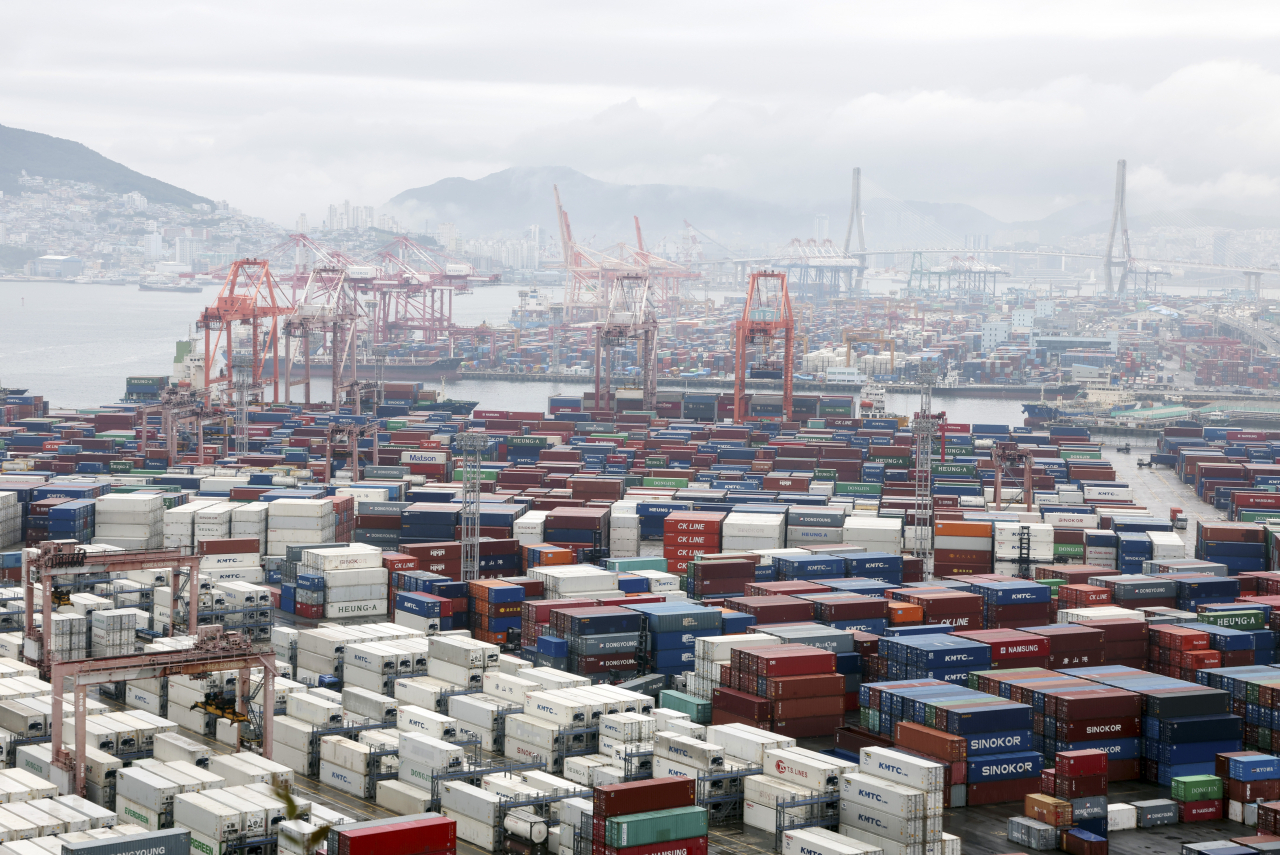 |
Containers for exports and imports are stacked at a pier in Busan, country's largest port city, Sunday. (Yonhap) |
Korea and other Asian nations can be key players in the global supply chain, as countries wean off their dependence on China, a report issued by the Korea Chamber of Commerce and Industry suggested Wednesday.
According to the report, Korea and other “Altasia” countries can be a substitute for China in the global trade scene. The term Altasia is a compound of alternative and Asia, encompassing 14 countries in Asia that could replace China in the global supply chain.
The weekly newspaper assessed that no one certain country could replace China, but the group of Altasia countries could, such as by combining the outstanding technology of Korea, Japan and Taiwan, logistics of Singapore and resources of Indonesia and Malaysia.
Vietnam, Thailand and India could contribute with their investment policies. The Philippines, Bangladesh, Myanmar, Laos and Cambodia meanwhile are able to provide low-cost labor.
The KCCI report suggested Korea would particularly excel among the 14 countries in such a scenario.
“Of the countries suggested as ‘Altasia,’ only a few including Korea have outstanding technology, human resources, stable social infrastructure and the appropriate market environment as a test bed,” said Lee Bu-hyung of the Hyundai Research Institute.
"The government has to work on strengthening economic diplomacy and reconstruction of trade strategy against China, (and) readjust the regulations that are in the way of business investments, so that Korea can be acknowledged as an alternative nation in the supply chain by the international community," Lee said.
Though Korea's exports to China have been on a steady decline in the past few years as it works on becoming more self-reliant in terms of resources and technology under its dual circulation strategy, Korea could find other export opportunities outside of China, the report said.
The KCCI insisted the range of trading partners of Korea should be expanded to countries in the Indo-Pacific, Middle East and Africa, as the regions have high growth potential.
Korea's export products should be diversified, too, as exports are currently heavily reliant on certain items, including chips. It explained the exports of intermediate goods should be upgraded to items of more advanced technology and complete products to make Korea an irreplaceable trading partner.
For technological advancement, the KCCI report suggested the government attract businesses to set up "mother factories" in Korea, secure a gap in technology with other nations and expand investments in R&D, especially for strategic industries and core technologies.
"The US-China tension can be the right opportunity for Korean businesses to accumulate technology," said Park Ki-soon, a professor from the Graduate School of China at Sungkyunkwan University.
"To compete against the Chinese government's protectionism, consumption of domestic goods and strengthened competence of Chinese businesses, there should be more talents who are well aware of the Chinese market and understand Chinese customers.”







